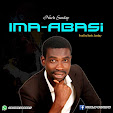are you SCORING SONGS but NOT IMPROVING
Song Scoring is used loosely to mean the learning of a song in order to reproduce it as accurately as possible.
So you hear people say stuff like:
"I've scored the lead vocal of that song"
"Have you scored the piano part?"
Song Scoring is one of the best ways to grow musically. So why do some people score a ton of songs each year and still remain at the same level musically???
This post will show where you might be missing it and what you should do to make song scoring beneficial to you.
"I've scored the lead vocal of that song"
"Have you scored the piano part?"
Song Scoring is one of the best ways to grow musically. So why do some people score a ton of songs each year and still remain at the same level musically???
This post will show where you might be missing it and what you should do to make song scoring beneficial to you.
1. Pay Attention to Detail
Tell me; if you ordered a nice plate of soup with lots of obstacles in it (I'm sure you know what I mean), wouldn't you take the time to deal with it?Or you want to tell me you would eat only the soup and maybe a piece of meat and avoid all the wonderful things inside?
No way!!! That devil is a liar!
Being meticulous in song scoring is the most determinant factor in what you will gain from a song. Do not overlook stuff when you are learning a piece. Most people just skim the surface based on pre-existing knowledge. Anything that is difficult or unfamiliar, they avoid.
When people get stuck while scoring, they start saying "I can't kill myself" and revert to what they are already used to.
Bad move.
Put in as much time as it takes to accurately reproduce what you are learning. A week, a month, 6 months, or more? However long it takes, stick to the learning process. Avoiding unfamiliar and difficult stuff while scoring is what places a lid on your growth.
2. Score Difficult Songs
Majority of songs released today are songs that will not stretch your musical abilities because they are very simplistic.Almost every song uses the 6-4-1-5 (la, fah, doh, soh) progression, so there is almost nothing stimulating in them for musicians and singers.
I do not have any issue with these songs. I sing and play them too. But if you really want to grow and stretch yourself musically, then these simple songs will not do the job.
Go look out for and score difficult stuff.
Don't know where to start from? Ask someone who is more advanced for guidance.
3. Dissect
Dissecting takes step one (attention to detail) a bit further. For each new thing you learn while scoring a song, learn to ask yourself two important questions:A. How was this put together? If it is a riff, what are the notes? If it is a chord progression, what are the chords used? What technique was used to achieve this? This opens you up to the inner workings of what you just learnt, giving you a deeper understanding.
B. Why was it used here? This question specifies the context; and in music as in life, context is key. There is no wrong note or chord. It all depends on the context (where and how it is used). This question will open your mind to creative and different ways of using a tool or concept you probably already know and use.
4. Apply it
A concept is never truly internalized if it has not been applied.Try this:
Take each new thing you learn while scoring - taking note of the context in which it was used- and see how you can apply that in everyday songs.
Make a list of about 4-5 songs and see how you can apply what you learnt to each of them.
This will strengthen your grasp of the concept and also make it readily available for your mind to access while you are performing live.
5. Listen to it over and over.
If you need something to be stuck in your head, then listen to it over and over again.As most of us already know, learning a new concept does not mean you will be able to immediately apply it while performing live. This is because your mind is still trying to get used to it.
However, when you listen to it over and over, it brings it to the forefront of your memory, and when combined with step 4 above, makes it easy to remember and deploy while you are playing or singing.
I hope this helps you grow in your musical journey.
Happy Scoring!
Happy Scoring!








0 Comments
Hi... You are welcome to nuelslyrics.blogspot.com
How can we be of help?